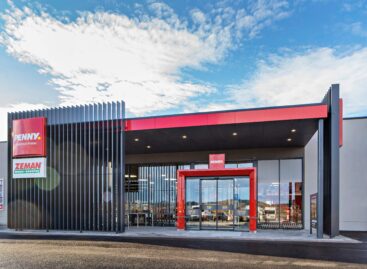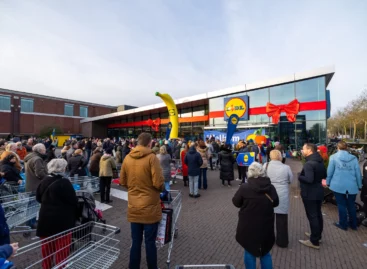
…I mean the 2021 ranking of FMCG retailers has already been published, and you can read about it in detail in the present issue of our magazine. There was no change in the first three places, Lidl, SPAR and Tesco are at the top of the ranking.
Let’s sum up the most important things: Lidl is undisputedly the No.1 FMCG retailer in Hungary, and in 2021 the distance between the discounter and the steady runner-up, SPAR, became even bigger, as Lidl’s sales revenue grew by just as much as the gross annual sales of the best-performing drugstore chain. Actually Lidl’s sales revenue increased the most from all the retailers on the list. However, SPAR opened the most new stores last year. Being present in the market with different store formats made the retail chain’s No.2 position even more stable. Tesco managed to hold on to its 2020 position and the retailer is making nice progress, trailing SPAR. Auchan, the third hypermarket chain, also performed better than in the previous year, and this year it was the only one in the ranking to move one place up, to the 6th position.
Discounters and drugstores were the two most successful channels last year, producing the best results, as their sales revenue and basket size growth was only surpassed by those in e-commerce. Lidl, Aldi and Penny had a superb year, just like the dm, Rossmann and Müller trio. The latter made it to the list for the first time, with its gross sales revenue lastingly going above the HUF 50 billion entry threshold. Just like in former years, Hungarian-owned retail chains also produced some kind of growth. It is true that Auchan was able to break the formerly solid unit of Coop, CBA and Reál in the ranking, but in the light of the fact that the store numbers of all Hungarian retail chains decreased, their improved sales performance is really good news.
The last two years were really special for FMCG retailers. By reacting rapidly to the changes, they were able to cope with the difficulties, solving one new problem after the other. Yet not only the sales performances of retailers improved, but their expenses got bigger too – and this caused a headache for quite a few of them in the sector. From the many factors influencing retail trade, it stands out that in many cases retail chains were able to come up with such excellent performances with several hundred workers missing from their teams per chain, and obviously this made their work even more difficult.
The permanent hardships experienced in the supply chain will stay with us for some time, and we already know that the situation is going to become worse in 2022. Costs were skyrocketing, currency exchange rates were volatile, there was an inflationary pressure and the financial situation of consumers got worse – these things made life harder for retailers in the last few years, and unfortunately this year isn’t likely to bring positive changes in this respect either. It very much seems that the carefree years lasting up until 2019 are over for a while. Let’s hope that we don’t need to wait another 5 years until things turn better.
Numerous changes will probably occur in 2022, in both offline and online FMCG retail, but we will only know more about the details one year from now, when we are going to analyse the results of next year’s ranking. You can download the 2021 retailer ranking from www.trademagazin.hu. //
Related news
Penny Czechia Seeks Growth With €112m Investment In 2026
🎧 Hallgasd a cikket: Lejátszás Szünet Folytatás Leállítás Nyelv: Auto…
Read more >Lidl Netherlands Unveils New Flagship Store Concept
🎧 Hallgasd a cikket: Lejátszás Szünet Folytatás Leállítás Nyelv: Auto…
Read more >Related news
Amikor a megszámlálhatatlan megszámlálhatóvá válik
🎧 Hallgasd a cikket: Lejátszás Szünet Folytatás Leállítás Nyelv: Auto…
Read more >(HU) A nap mondása
🎧 Hallgasd a cikket: Lejátszás Szünet Folytatás Leállítás Nyelv: Auto…
Read more >







